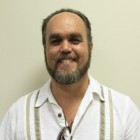
OP-ED: ‘The War on Drugs’ Makes Kids Less Safe
|
The "War on Drugs," supposedly aimed at making our lives safer, has had terrible consequences for youth.
Juvenile Justice Information Exchange (https://jjie.org/page/286/)

In late September, Torri was driving down the highway with her 11-year-old son Junior in the back seat when her phone started ringing.
It was the Hamilton County Sheriff’s deputy who worked at Junior’s middle school in Chattanooga, Tennessee. Deputy Arthur Richardson asked Torri where she was. She told him she was on the way to a family birthday dinner at LongHorn Steakhouse.
“He said, ‘Is Junior with you?’” Torri recalled.
Earlier that day, Junior had been accused by other students of making a threat against the school. When Torri had come to pick him up, she’d spoken with Richardson and with administrators, who’d told her he was allowed to return to class the next day. The principal had said she would carry out an investigation then. ProPublica and WPLN are using a nickname for Junior and not including Torri’s last name at the family’s request, to prevent him from being identifiable.
When Richardson called her in the car, Torri immediately felt uneasy. He didn’t say much before hanging up, and she thought about turning around to go home. But she kept driving. When they walked into the restaurant, Torri watched as Junior happily greeted his family.
Soon her phone rang again. It was the deputy. He said he was outside in the strip mall’s parking lot and needed to talk to Junior. Torri called Junior’s stepdad, Kevin Boyer, for extra support, putting him on speaker as she went outside to talk to Richardson. She left Junior with the family, wanting to protect her son for as long as she could ...

The "War on Drugs," supposedly aimed at making our lives safer, has had terrible consequences for youth.
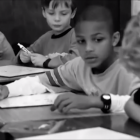
A new 25-minute documentary follows the stories of three students in Wake County, N.C., and how a school system pushed them into juvenile and criminal courts.
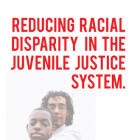
The new Juvenile Justice Resource Hub section on racial-ethnic fairness covers the persistent problem of racial and ethnic disparities in the juvenile justice system and details some promising reforms aimed at addressing this inequity, along with other research and best practices in this critical juvenile justice issue.

All children deserve to be treated fairly in the juvenile justice system. Unfortunately, all too often, that is not the case for minority youth.
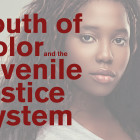
Despite hundreds of millions in grants to reduce the overrepresentation of minority youth in the juvenile justice system, youth of color still appear in disproportionate numbers in many areas of the system.
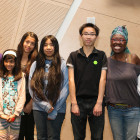
Nine young people stood on a stage last week in San Francisco to read their poetry — and two others detained in juvenile hall had their recorded voices presented. "You can feel the heat and desperation," read student K.M. from his poem about the sun, recorded at the San Francisco Juvenile Justice Center. The audience also heard student T.K.'s recorded voice: "I'm not a statistic that needs to be saved," he read from his poem "The Story of My Name." The event was WritersCorps Live at the CJM, a public presentation at the Contemporary Jewish Museum of poetry created by young people in WritersCorps workshops across the city. Three adults, including Nigerian performance poet Yvonne Fly Onakeme Etaghene, also read their work in the intergenerational event.
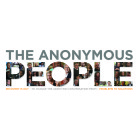
The premise of the documentary, “The Anonymous People,” is that we need a new way of looking at addiction and recovery.
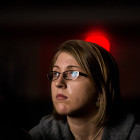
“The Anonymous People" is a film that looks at the history of the recovery movement and the anonymity that is central to 12-step programs. But it also looks at the growing movement of people in recovery who are coming out publicly to shed the stigma. Photographer Robert Stolarik documented a screening of the film in Connecticut.